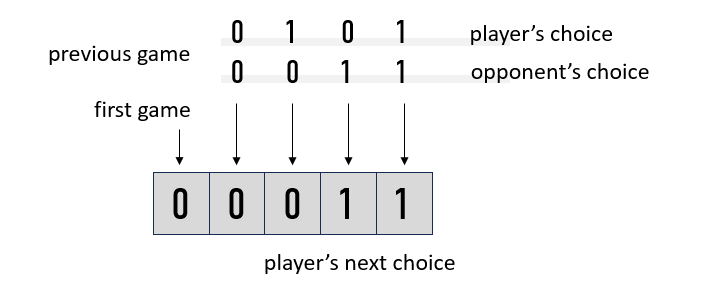Insider Brief
- At a May 7 House Science Committee hearing, lawmakers and quantum industry leaders supported reauthorizing the National Quantum Initiative to maintain U.S. leadership in quantum technologies.
- Witnesses from Google, Microsoft, PsiQuantum, and QED-C emphasized the need for expanded federal investment, workforce development, and secure supply chains.
- Committee members warned that rival nations are accelerating quantum efforts, and urged bipartisan action despite fiscal constraints and recent cuts to research funding.
Although reports on the Trump administration’s “skinny budget” dashed hopes for a revived National Quantum Initiative, politicians and quantum experts added weight to the proposed reauthorization in testimony before the House Science Committee.
During a May 7 hearing, members of the Congressional committee and executives from leading quantum companies called for increased federal support to keep the United States competitive in a fast-moving global quantum race. The original National Quantum Initiative Act, passed in 2018, elevated quantum information science as a national priority, leading to the creation of research hubs, the formation of a public-private consortium and a more coordinated approach to quantum development across federal agencies.
Witnesses from Google, PsiQuantum, Microsoft and the Quantum Economic Development Consortium (QED-C) said the law had helped establish U.S. leadership in quantum computing hardware and algorithms. However, they cautioned that the next phase of quantum development would require more than research grants.

The government must act as a strategic buyer, a workforce builder, and an infrastructure provider, Celia Merzbacher is Executive Director of the Quantum Economic Development Consortium (QED-C) advised the committee.
“Quantum is having a moment,” Merzbacher told the committee in her opening statement. “2025 has been designated the International Year of quantum science and technology, celebrating 100 years since the initial development of quantum mechanics, the growing ability to control quantum phenomena is leading to technologies and applications with enormous economic value. Countries worldwide are racing to get the lead with quantum in the spotlight. Now is the time to assess the US position and take steps to make sure the United States wins that race.”
U.S. in The Lead… For Now
Brian Babin (R-Texas) told the hearing that the global market is projected to reach $1.88 billion this year, up more than 27% from 2024. The United States currently leads in metrics like patent filings and venture capital investment, but countries like China, the United Kingdom, Canada and Australia are moving aggressively to expand their positions in quantum communications, sensing and encryption.
China, in particular, has achieved milestones like launching the world’s first quantum communication satellite, he added.
“Quantum Information Science is also vital to our national security,” said Babin. “If exploited by adversaries, it could jeopardize government communications, financial systems and critical infrastructure by breaking current encryption methods. In contrast, quantum resistant cryptography and quantum key distribution ensure secure communications against quantum attacks. Additionally, quantum sensing technologies could dramatically enhance military navigation, timing and detection capabilities. Nations that lead in quantum computing will gain drastic intelligence advantages, making it critical that we not fall behind strategic challengers like China, as global competitors race ahead the US must bolster its strategic and collaborative efforts to stay in front.”
Babin advised that taxpayer dollars could be used more effectively by leveraging private sector investment to bolster quantum science, which could pave the way for real-world applications.
According to the congressman, last week’s White House budget proposal, which flatlined spending on quantum, was just an opening stance.
“Lastly, I would be remiss if I did not address the President’s recent skinny budget proposal,” Babin said. “This marks the beginning of the budget process and opening dialog, not a final decision at all.”
Google Quantum AI
Charina Chou, Chief Operating Officer at Google Quantum AI highlighted the company’s progress toward building a scalable quantum computer, saying it could unlock massive benefits for science and society.
“We believe quantum computers can help to shape a brighter future solving otherwise impossible problems in the fields of drug discovery, industrial chemistry, energy and more,” Chou said. “These applications will have far reaching impacts for the economy and for national security. We’re optimistic that within the next five years, we will see real world applications that are only possible on quantum computers.”
The company fabricated three milestone chips in California, each showing stronger capabilities in error correction and computational power. One chip, called Willow, reportedly executed a task in minutes that would take a classical supercomputer 10 septillion years. Yet the company said future advances require scaling from 100 to one million qubits, the quantum equivalent of bits, which demands long-term investment in materials, software and clean manufacturing facilities.
“Our vision is that one day, people will use classical computers and quantum computers side by side to advance the boundaries of human knowledge and to solve some of the world’s most complex problems,” said Chou. “We believe the work of this committee and the reauthorization of the national quantum initiative will be critical to continued American leadership in quantum computing.”
PsiQuantum Building in U.S.
Pete Shadbolt, co-founder and Chief Scientific Officer of PsiQuantum, echoed that message of quantum’s importance in his opening statement.
“Our advanced society is built on a microscopic foundation of chemistry, physics and math,” said Shadbolt. “Leadership in many of our critical industries is contingent on drug molecules, fuels, materials, catalysts. Fertilizers and semiconductor manufacturing processes, where today, despite the great progress in high performance computing and artificial intelligence, we often lack the tools to rapidly design new capabilities without enormously expensive trial and error, these are exactly the problems where quantum computers promise to give answers which will remain forever out of reach of any conventional computer.”
Shadbolt cited company plan to break ground this year on a quantum computer the size of a data center as evidence of the company’s seriousness to build quantum computers that solve practical, but important problems.
“Our company was founded with a vigorous determination to drag quantum computing out of the research lab and into the mature semiconductor manufacturing industry,” Shadbolt said.
The firm manufactures thousands of wafers using GlobalFoundries’ semiconductor fabrication plant in New York and is preparing for mass production of specialized cooling systems. The company’s leaders argued that the U.S. must secure access to a utility-scale quantum computer for national use.
“The United States currently enjoys an unequivocal leadership position in quantum computing and advanced technology more broadly,” said Shadbolt. “However, that status is under perpetual and escalating threat from both benign competitors and hostile adversaries. They want tech superiority just as much as we do, and will stop at nothing to get it. Now is the time for governments to take bold steps and secure the future of this critical technology.”
Universe OS
Charles Tahan, Partner, Microsoft told the committee that quantum science is reaching a milestone moment, but needs more support to round that cusp in history.
“I like to think of quantum as the operating system of the universe,” said Tahan, who previously served as Assistant Director of Quantum Information Science and Director of the National Quantum Coordination Office (NQCO), an office within the White House Office of Science and Technology Policy. “What we physicists call quantum mechanics are just the rules that the universe uses at the microscopic level. We are now building tools to take advantage of these quantum effects to create fundamentally new types of information technology, technology like quantum computers, quantum sensors and quantum networks.”
Tahan presented its new Majorana One chip and emphasized progress toward topological qubits, a more stable type of quantum hardware. The company is one of several selected for DARPA’s quantum benchmarking initiative, which aims to assess and compare various quantum platforms, he reported.
According to Tahan, scientific teams from around the world are closing in on scaling large quantum systems.
“I have waited my entire career for that milestone,” Tahan said.
Tahan also argued that AI and quantum computing are complementary and could unlock new forms of scientific and industrial productivity.
“We have also witnessed the remarkable rise of artificial intelligence with profound implications for the productivity of the human race,” said Tahan. “Despite this potential, quantum science has taught us that today’s classical computers, no matter how powerful, are unable to match quantum for certain problems, quantum and AI are, in fact, complimentary, and we’re still learning how they can help each other.”
Tahan suggested that a national quantum strategy must focus on three pillars: sustained support for federal research agencies like DOE, NSF and NIST to bridge the lab-to-market gap; aggressive expansion of the quantum talent pipeline, from K–12 to global recruitment; and coordinated action to secure a domestic quantum supply chain through public-private partnerships and onshoring critical infrastructure.
Urging Bi-Partisan Support and Cooperation
Witnesses urged Congress to expand existing programs such as the Small Business Innovation Research (SBIR) grants and explore new models like Other Transaction Authorities (OTAs) to help startups bridge the gap between lab research and commercial deployment. They also pushed for the government to act as an early buyer of quantum systems through advanced market commitments, a tool used during the COVID-19 pandemic to spur vaccine development.
Across the board, the panel called for improvements in infrastructure, particularly fabrication and test facilities that would allow domestic quantum manufacturing to scale. Without early investment, the U.S. could face the costly need to reshore quantum supply chains later, experts said. Likewise, all witnesses agreed on the urgent need to expand the quantum talent pipeline, including technicians, systems engineers, and PhD-level researchers. Several noted that much of the foundational work that enables commercial systems came from publicly funded labs and academic institutions.
Support in an Era of Spending Cuts
Committee members expressed bipartisan support for reauthorization, though they acknowledged growing pressure to rein in discretionary spending. Chairman Brian Babin called the reauthorization a step toward protecting national security, citing risks from adversaries using quantum computers to break encryption. Ranking Member Zoe Lofgren warned that recent cuts to NSF grants and STEM education programs could undercut U.S. leadership.
Emerging tensions around workforce inclusion and research priorities also surfaced in the hearing. Lofgren criticized the termination of an NSF grant called Building Educational Growth for Industry Learning, which focused on training underrepresented groups in quantum literacy and machine learning. She said such actions conflict with the broader goals of U.S. quantum leadership.
Multiple witnesses highlighted the value of immigration and international collaboration, noting that elite quantum talent often comes from global academic pipelines.
.png)




